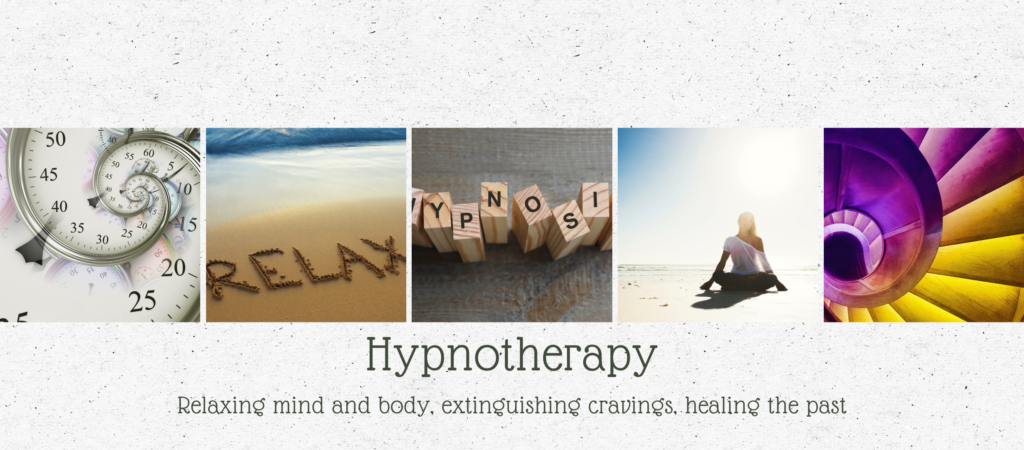
As your therapist, I will guide you into a relaxed state of concentration through guided imagery.
By doing this together in the session, and by listening to the tapes I make for you, you will learn to enter hypnosis on your own in order to benefit yourself.
Hypnotherapy is used three ways
- Relaxation
- Cognitive restructuring (changing negative self-talk)
- Going to the source of the problem through ‘regression’
Reasons to use Hypnotherapy
To achieve relief from:
- Anxiety
- Depression
- Sleeplessness
- Phobias
- Trauma
- Pain
- Medical Problems
- Weight Problems
- Smoking Addiction
- Habit disorders
Myths and misconceptions about hypnosis
People understandably have fears about an unfamiliar and new technique. Stage hypnotists who command people to bark like dogs give people to wrong impression, because they cause people to fear that their minds will be controlled by another person. This is not the case at all. In hypnosis you are in a state of heightened concentration, similar to a meditative state. You would not do anything that is against your character or morals, and you will not reveal secrets you would rather not say.
Frequently asked questions:
- I don’t think I can be hypnotized, should I try it anyway?
People don’t realize that they hypnotize themselves all the time. Watching television, riding long distances in a car, even reading a book or exercising can lead to a relaxing trance state. - Do I have control over what I say and do?
You will find you have more control over what you say and do. - What if I fall asleep?
This is a very relaxed state, and some people welcome the relaxation so much, that they may begin to fall sleep. However, you and I talk and are interactive during the session. In that way we make sure that you stay awake to benefit from it. - Are you sure I am going to come out of the trance?
People often achieve such a relaxed, comfortable state, that they do not want to come out, but when they realize that they themselves can bring themselves to that state again, they are eager to come out to share what they have learned.. - What is the subconscious mind?
We might describe our mind as like a glacier, only a small portion of which is above water, and visible to us. Like a glacier, there is a huge part beneath the surface. This is the subconscious mind, which still influences us, but about which we often remain unaware. - It’s hard to believe that I don’t know what’s in my own mind. Can you give me an example?
Often when I work with clients, I find that they are saying negative things to themselves without realizing it. These act as hypnotic suggestions and also reinforce negative self-views. We often have memories and messages deep in our subconscious that are affecting us without our being fully aware of them.
